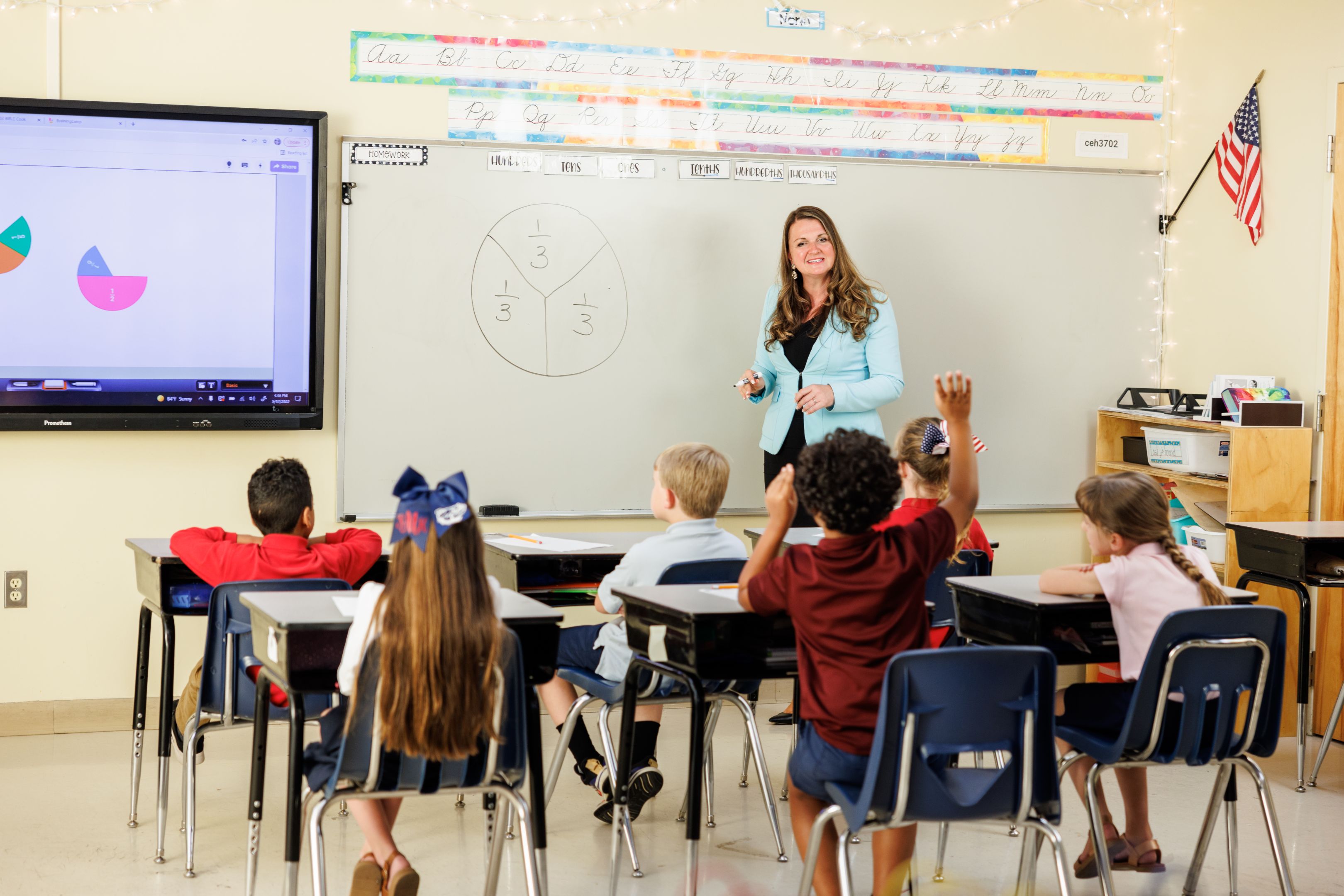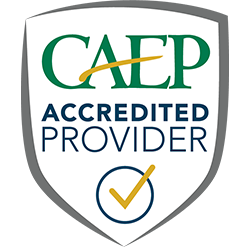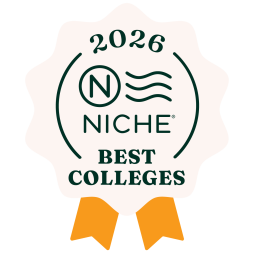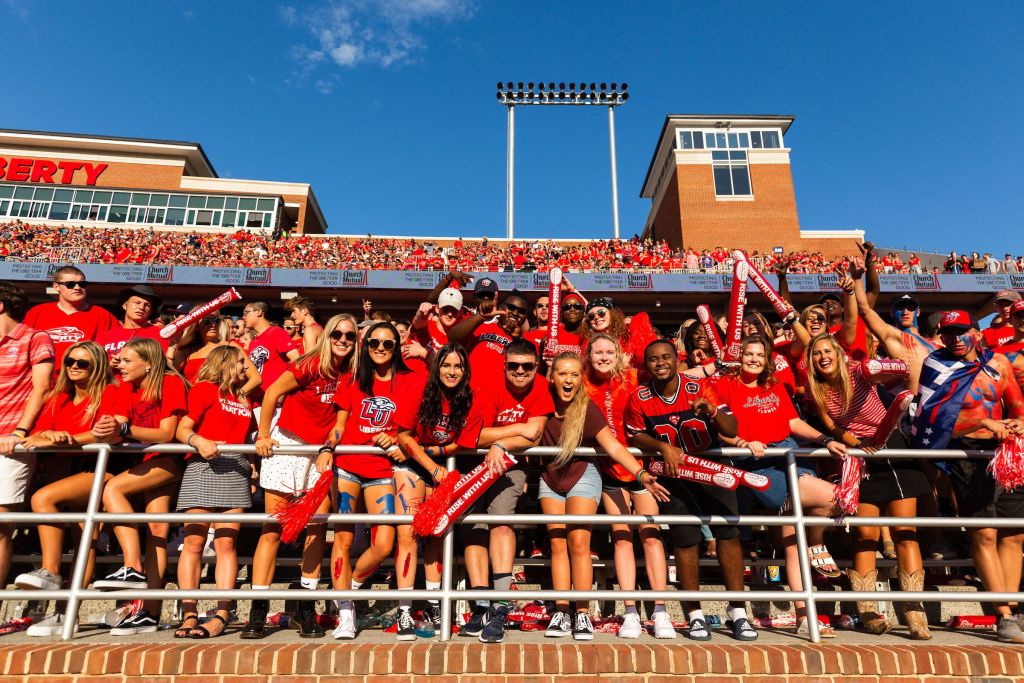
B.Ed. Special Ed. – Adapted & General Curriculum
Prepare to Support Diverse Learners Across K-12 Classrooms with a Bachelor’s in Special Education – Adapted and General Curriculum
If you want to help students of all abilities thrive in the classroom, Liberty University’s Bachelor of Education (B.Ed.) in Special Education – Adapted and General Curriculum K-12 can help you take the next step. This licensure-track special education degree is designed to help equip aspiring educators like you to teach students with mild to severe disabilities across K-12 settings. Through this residential special education undergraduate program, you can pursue licensure through the Virginia Department of Education.
Whether you want to serve in public or private schools, this program can help provide a foundation in instructional methods, behavior management, and legal compliance to help prepare you for the classroom. The bachelor’s in special education at Liberty is rooted in academic excellence and a commitment to Christian values, giving you the tools to teach skillfully and compassionately.
Upon successful completion of Liberty University’s Virginia state-approved Bachelor of Education program, you may apply for your teaching license in another state through reciprocity, which may or may not result in additional requirements based on your state’s Department of Education regulations.
Credit Hours
View CoursesNext start date: Aug 24, 2026

CAEP Accredited
Highlights
Highlights of Our B.Ed. in Special Education – Adapted and General Curriculum K-12
A Path to Licensure
This program is designed to help you qualify for an endorsement in Virginia. Earning licensure can help you meet the diverse needs of students across a wide range of learning abilities.
Built-In Classroom Experience
Through structured field experiences, you can begin working in local K-12 classrooms early in your degree program. Practicum placements and student teaching allow you to apply what you study in real time – helping you build confidence before graduation.
Faith-Based Educational Training
Liberty integrates a biblical worldview into every aspect of teacher preparation. You’ll be encouraged to see your role as a teacher not just as a profession, but as a calling to serve students with compassion, integrity, and purpose.
Academic Excellence
The School of Education at Liberty University is nationally accredited through the Council for the Accreditation of Educator Preparation (CAEP), demonstrating our commitment. Our faculty bring real-world experience into the classroom and are dedicated to mentoring the next generation of educators.
Career Potential
What Can You Do with an Adapted and General Curriculum Special Education B.Ed.?
Liberty University’s Bachelor of Education (B.Ed.) in Special Education with a specialization in adapted and general curriculum K-12 can help prepare you to pursue the following occupations:
- Behavior intervention specialist
- Curriculum developer
- Educational consultant
- Inclusion specialist
- Transition coordinator


#2 Best College Campus in America
At Liberty, you’ll find an affordable, high-quality education designed to help equip students like you for the real world. Our commitment to excellence has earned us recognition as the #2 Best College Campus in America by Niche.com for 2026.
Earning your degree from a nonprofit university with state-of-the-art resources like ours can help set you apart from your peers.
Courses
What Will You Study in Our B.Ed. in Special Education – Adapted and General Curriculum Program?
In Liberty’s B.Ed. in Special Education – Adapted and General Curriculum K-12 program, your coursework is designed to help prepare you for licensure. You can build a foundation in educational theory, instructional design, and classroom management, studying how to plan lessons that accommodate a variety of learning styles and developmental levels. The special education bachelor’s program includes dedicated training in developing and implementing Individualized Education Programs (IEPs), focusing on data-informed instruction and collaborative problem-solving.
As you progress through the degree, you’ll study how to support students with moderate to severe disabilities through adapted curriculum instruction and how to assist students with learning disabilities or emotional and behavioral needs in general curriculum classrooms. You’ll examine legal and ethical considerations in special education, explore behavior management strategies, and analyze techniques for creating inclusive, supportive learning environments. The special education – adapted and general curriculum K-12 bachelor’s program also emphasizes working collaboratively with families, school professionals, and community stakeholders to create holistic educational plans.
Specialized courses can help equip you with practical tools for teaching across both adapted and general curriculum types. In addition to these core courses, you can complete field experiences and a student teaching placement that allow you to apply what you’re studying in real-world K-12 classrooms. These experiences are integrated throughout the program, so you can gradually build your skills, confidence, and understanding of what it means to serve as a licensed special education teacher. Whether you’re developing adapted learning strategies or managing classroom behavior, each course in this licensure-track special education program is focused on helping prepare you to meet the diverse needs of today’s students.
Additional Degree Information
Featured Adapted and General Curriculum Courses
EDSP 345 – Cognitive and Medical Characteristics of Students with Significant Disabilities
EDSP 363 – Behavior Management
EDSP 445 – Instructional Methods and Strategies for Students with Significant Disabilities
EDSP 473 – Assessment and Transition Planning for Diverse Learners
Degree Information
- This program falls under the School of Education
- View the Degree Completion Plan
- Check out our course catalog
- Transfer in up to 75% of the degree total
BENEFITS
Why Choose Liberty’s B.Ed. in Special Education – Adapted and General Curriculum K-12?
Earn Licensure
Liberty’s B.Ed. in Special Education – Adapted and General Curriculum K-12 is designed to help you qualify for a Virginia endorsement licensure, and you can become better equipped to help meet the needs of students across a broad spectrum of learning abilities.
Faculty Who Invest in You
At Liberty, you’re more than just a number. Our education faculty bring years of classroom and leadership experience to their teaching – but more importantly, they’re committed to mentoring you personally. With small class sizes and one-on-one support, you can receive guidance throughout your academic journey.
Purposeful Training
This degree isn’t just about studying theory; it’s about applying what you study through intentional, hands-on experiences. During your academic journey, you’ll engage in field placements, collaborate with peers, and develop teaching strategies designed to serve students with exceptionalities.
A Calling to Serve Through Education
Liberty’s Christian mission is woven into every aspect of this program. As you train to become a special education teacher, you’ll be challenged to see your future career as a platform for compassion, advocacy, and service – helping equip you to make a lasting impact in your school and community.
Admissions
How Do You Become a Bachelor’s in Special Education Student?
Every application is reviewed by the admission committee on a case-by-case basis, meaning there are no set minimums for acceptance. However, all applicants must submit the following documents* for admission:
- Admission application
- Official high school transcripts
- Official college transcripts (if applicable)
- Admission essay
Results from the CLT, SAT, or ACT are not required for admission, but may be used in consideration for merit-based aid.
*Note that additional documentation may be requested by the admission committee after your application has been received.

Have Questions?
We’ll make sure you have the information you need to take your next step.